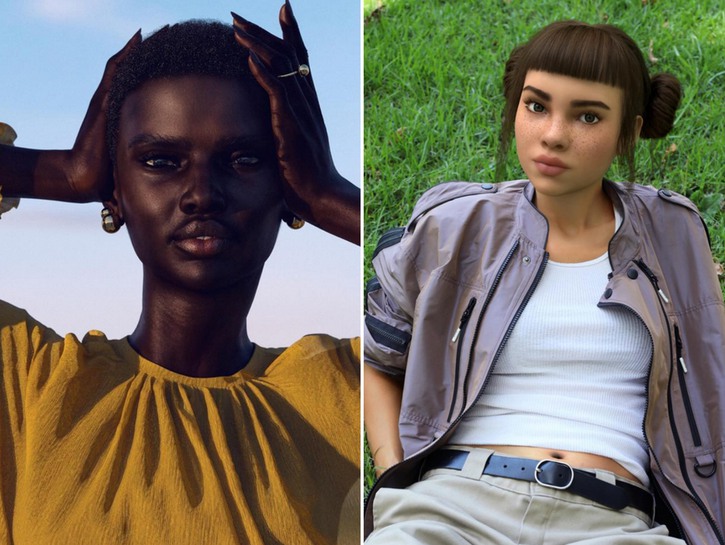Meet Shudu. She’s a model from South Africa in her mid-to-late 20’s. She currently has around 136,000 followers on Instagram and has been featured in Cosmopolitan. She’s also not a real person.
Shudu is self-described as “the world’s first digital supermodel,” and with life-like features like pores, wrinkles, and eyebrow hairs, it’s hard to believe she’s not human.
Shudu was created by London-based photographer, Cameron-James Wilson, who has worked with Gigi Hadid and Pia Mia. Wilson created Shudu with the intention of bringing more diversity to the fashion and gaming world. However, he received a fair amount of backlash because by creating digital models, he was taking away work from ‘real’ models. He was also criticized for being a white man representing a black woman.
Though Wilson has since stated that there were problems with the way he initially represented Shudu, he now uses hashtags to reflect that she is a work of 3D and CGI art. As for taking away work from other models, Wilson views digital modeling as a future tool to enrich the careers of real-life models, allowing them to book multiple jobs simultaneously. He told Cosmopolitan, “If we want to talk about robots taking away jobs, and I think that’s important, I think we need to look more at everyday jobs that are going. The supermarket—each one of those self-service checkouts was the job of a person once.”
Shudu isn’t the only digital influencer around either. Lil Miquela made her internet debut back in 2016. Now she boasts over 1.3M followers on Instagram. She has collaborated with major brands like Tesla and Prada, promotes social justice movements like Black Lives Matter and the Innocence Project, and was even featured in Time Magazine’s “25 Most Influential People on the Internet” for 2018.
The future of modeling is now and Shudu and Lil Miquela’s influence is only the beginning.
What do you think? Share in the comments!
